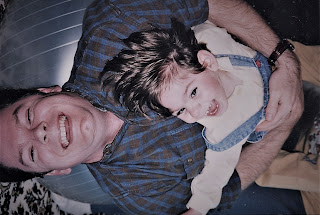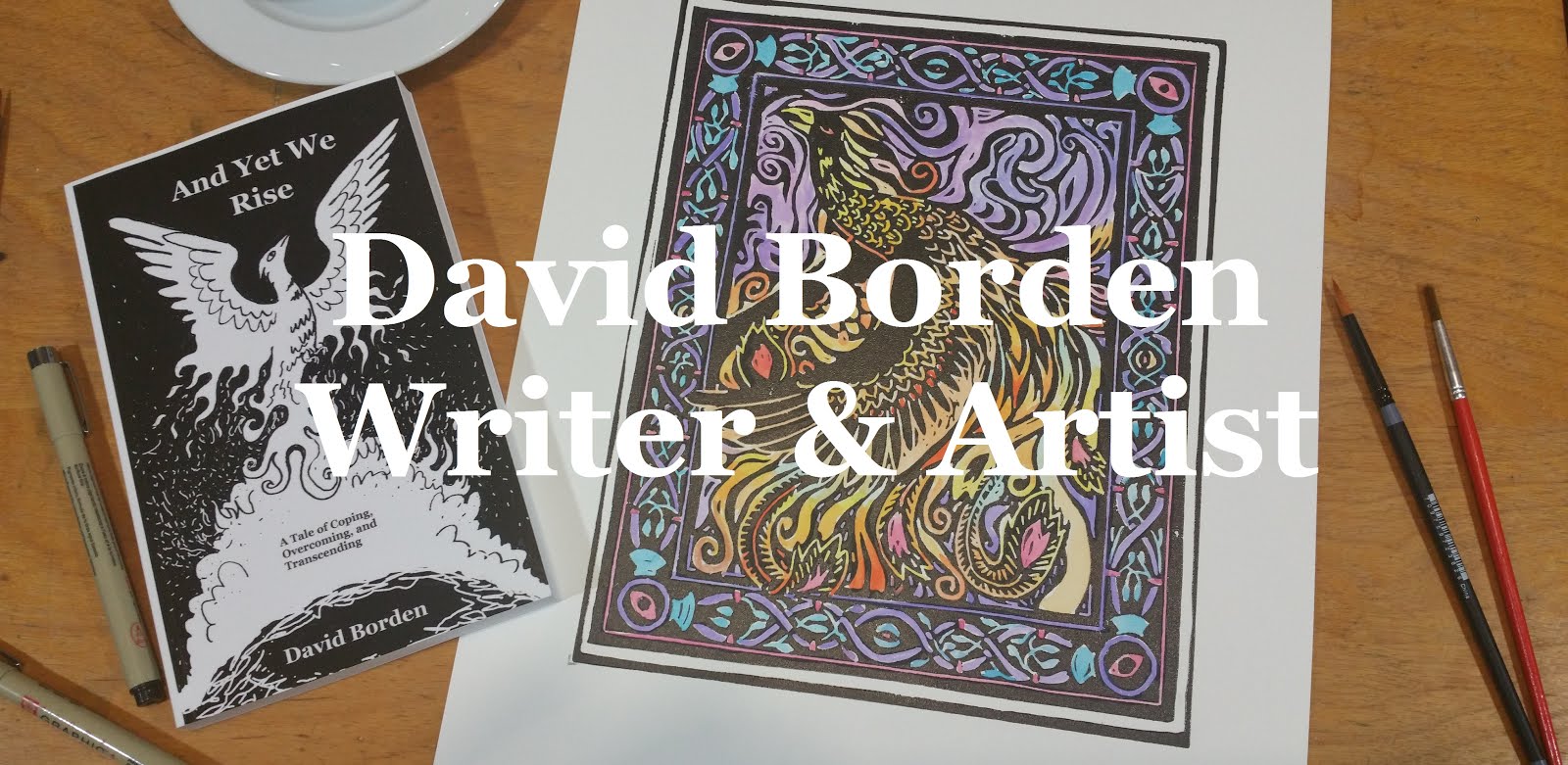Parenting a Disabled Child: The Realities of Life and Death
Indomitable: (adj.)
The quality of being unbreakable; incapable of being subdued or destroyed; unconquerable.It is hard to believe that I led a very different life before Savannah arrived on April Fool's Day, 1999. Sometimes I miss that life: living abroad, travelling the world, having unbelievable adventures as a matter of course. I used to miss the physical freedom I had before I became a caretaker, a nurse, and an administrative assistant to this child.
But then Savannah passed away in 2015 and, suddenly, the liberation I craved for so long, seemed hollow.
 |
| Savannah and her Daddy |
I always dismissed the idea because this journey is unique for everyone that takes it. It would be presumptuous to even suggest that I know how a parent should care for a multiply disabled child.
Though I couldn’t write a guide about how to raise a multiply disabled child, I could write about the realities of life and death. There were times when I thought the experience of caring for Savannah would destroy me, but it didn’t. In fact, it has made me resilient, more compassionate, and wiser. It has given me a perspective that I hope can help others.
Disability Touches Everyone Eventually
Statistically speaking, most Americans, if they live long enough, will either be faced with caring for a disabled person, or become disable themselves during their lifetime. Disability as become the largest and fastest growing minority class in America. Illness and disability are the leading cause of bankruptcy. Eventually everyone must ask themselves one of these questions: What are you going to do when you have to quit your job to live with an ill, dying parent? What are you going to do when your spouse can no longer care for herself? What are you going to do if you teen-aged son receives a traumatic brain injury in a car accident? What will you do if your newborn child is like mine?You can let that experience drain you, grind you down, or you can make the best of it, not by putting on a fake smile and pretending, but by accepting the ugly reality and finding your own pathway to the truth of your experience. I’m going to be perfectly straight with you:
If this happens to you, you’re on your own. You have no help.
The many support systems and services available are designed for the disabled person, not you, except for a few self-organized caretaker support groups here and there (some of which are wonderful and should be praised). If you do have help, I am happy for you; you should be forever grateful to that person who has made the sacrifice to be there at all hours of the long, dark night, who gives you relief without question, who helps you fill out the reams of paperwork, who makes hundreds of phone calls for you, who prepares your meals when you stop eating, cleans your medical equipment, changes diapers, allows you to cry on their shoulder until your tears dry up, and lends you money without interest when your family, body, and finances are utterly broken.You will lose all privacy when your life blows open like a hospital smock to the scrutiny of case managers, social workers, doctors, bureaucrats, and anyone with an opinion on how you are doing this wrong-- because, believe me, you are doing it wrong. People will insert themselves into every facet of your personal life, even into your home, with check-box forms, inspecting your life in every detail. You will have caretakers living on top of you, breaking your favorite things, stealing, talking on their cell phones, bringing their weird boyfriends over, and listening to all your intimate conversations. Your lack of any privacy will drive a wedge between you and your spouse (if you still have one) and you will be desperate to find a quiet place in which to seek refuge.
When you have children, people feel free to express their opinions on how to raise them. When you have a disabled child those opinions are magnified ten-fold. Complete strangers would stop me to ask invasive questions. "What wrong with her?" was my favorite. They questioned whether I was doing enough. They generally believed they were being helpful and had my child’s interest at heart, but when they spoke, all I heard was, “you aren’t doing enough,” and “this is all your fault.” All I wanted to say was "Mind your own business" and "You shouldn't talk about things you know nothing about."
If you wish to glimpse into this life, take a look at my book. You can download the opening chapter for free. You will witness the trauma, the sorrow, and the suffering, but you will also get to experience the joy and the triumph. You will see how this experience can trap you in a personal dungeon, but how it can also set you free in a way you’ve never imagined.
The Gift
Savannah gave me the gift of freedom, not physical freedom, but the freedom from fear. She bent me to the point at which I knew I would break. But I didn't. I simply bent a little farther... and I have learned that I will bend again with each blow, each ice-age. She taught me that life comes in strange manifestations, and to fear its ambiguity is to shrink from it and miss its most vital parts. These days, I don't want to miss a single thing. Now, I can stand before the oncoming storm and enjoy its beauty. I can run up to the crushing glacier and tap its side and yell, "Nanny, nanny boo-boo! You don't scare me!" There's nothing anyone can do to hurt me. I’ve ventured into the abyss and seen what’s hiding in the darkness... I no longer fear to cut my own path through the world, for Savannah has taught me to be like a glacier-- you can see me coming, but you are powerless to stop me.I am indomitable.
This is the first in a series of articles about my struggle and the writing of the ground-breaking graphic novel: And Yet We Rise: A Tale of Coping, Overcoming, and Transcending.
Twitter @dsborden
Instagram: https://www.instagram.com/davidborden5912/
Website: www.ScribbleFire.com
#disability #specialneeds #parenting #grief #inspiration #transcendence #hope #love #family #memoir #graphicnovel #comics



Comments
Post a Comment